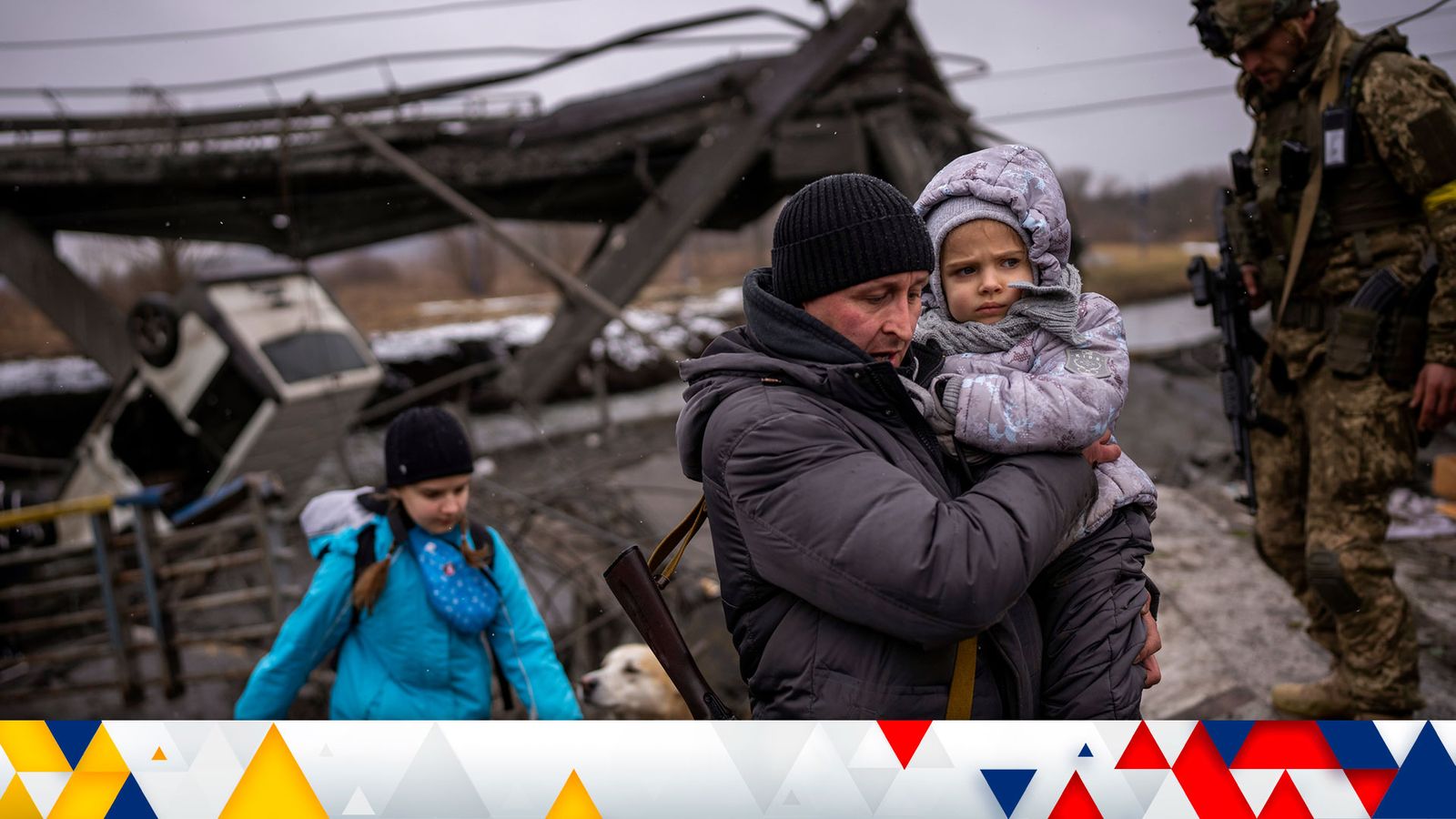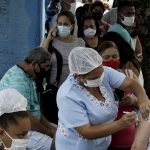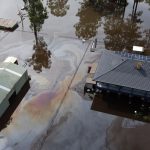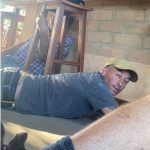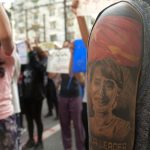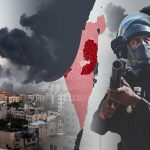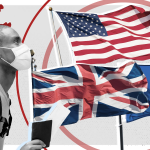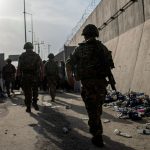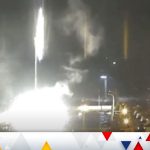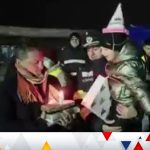British police are appealing for anyone who may have been a victim of a war crime in Ukraine or witnessed one being committed there in the past nine years to contact them.
The Metropolitan Police said it is gathering evidence over alleged war crimes in the eastern European country as part of an investigation by the International Criminal Court (ICC).
The force said detectives from its War Crimes Team want to hear from anyone in the UK who may have direct evidence of war crimes in Ukraine from 21 November 2013 to now.
Ukraine invasion – Live updates
Please use Chrome browser for a more accessible video player
In a statement, the Met said: “Evidence provided to and gathered by the Met’s War Crimes Team may then be shared with the ICC to assist with their ongoing investigation.
“At this time, and in line with jointly established guidelines with the Crown Prosecution Service, there is no UK-based investigation by the War Crimes Team into war crimes in Ukraine.”
For more than a week now, Ukrainian troops have been battling Russian forces after President Vladimir Putin launched his full-scale invasion on 24 February.
Ukraine invasion: Attention turns to McDonald’s and crypto exchanges, yet to take a stand against Russia
Ukraine invasion: Refugees fleeing war-torn country who have family in UK will be eligible for three-year UK visas
Microsoft to suspend all sales and services in Russia
The UN has said at least 249 civilians have been killed since the Kremlin’s tanks crossed the border in the biggest military attack on a European state since World War Two.
Ukrainian emergency services said the real fatality figure is almost 10 times higher.
Images of cluster bombs and artillery strikes on Ukrainian cities have prompted the world’s top war crimes prosecutor to launch an investigation, with the support of dozens of nations opposed to Russia’s offensive.
What power does the ICC have?
Karim Khan, a British lawyer who is the chief prosecutor of the ICC, has said the crisis in Ukraine was a chance to demonstrate that those committing war crimes would be held to account.
“I think the world is watching. The world expects better,” said Mr Khan, who has sent an advance team of investigators and lawyers to the region.
“Any side that targets – directly targets – civilians or civilian objects is committing a crime.”
Mr Khan said his office would be examining possible war crimes, crimes against humanity and genocide – the offences under the court’s jurisdiction – by all parties in the conflict.
Neither Russia nor Ukraine are members of the ICC, and Moscow does not recognise the court, which was established in 1997 by the Rome Statute and opened in The Hague in 2002.
Though not a member of the ICC, Ukraine signed a declaration in 2014 giving the court jurisdiction over alleged grave crimes committed on its territory from 2014 onwards regardless of the nationality of the perpetrators.
Please use Chrome browser for a more accessible video player
‘Deeply alarmed’
The US ambassador to the European Office of the UN, Sheba Crocker, has said: “We are deeply alarmed by daily reports of civilian casualties and of Russia’s deployment of weapons such as cluster munitions and thermobarics against cities where innocent people are sheltering.”
Earlier this week, Boris Johnson accused Mr Putin of committing “a war crime” as he spoke during a session of PMQs preceded by a standing ovation for Ukraine’s ambassador.
The prime minister condemned Mr Putin’s “abhorrent” attack on his country’s neighbour.
And he told the Commons: “What we have seen already from Vladimir Putin’s regime – in the use of munitions they have already been dropping on innocent civilians – in my view already fully qualifies as a war crime.”
Justice Secretary Dominic Raab said this week that Russian commanders will be hunted down for war crimes if they follow Mr Putin’s orders in Ukraine.
He said the UK is already planning to help identify and find fugitives suspected of war crimes.
In November 2013, large pro-Europe protests took place in the Ukrainian capital Kyiv against the rule of then pro-Moscow president Viktor Yanukovich’s government, with authorities launching a crackdown.
Then in February 2014, Russia invaded and annexed the Crimean Peninsula from Ukraine.
Please use Chrome browser for a more accessible video player
Who do the police want to hear from?
Commander Richard Smith, head of the Met’s Counter Terrorism Command, which includes the War Crimes Team, said: “Following the news that the ICC had opened an investigation into war crimes in Ukraine, our War Crimes Team is now seeking to gather any evidence that might be present here in the UK of such crimes in Ukraine.
“This could be in the form of direct messages, images or videos that friends or relatives here in the UK have been sent by those in Ukraine.
“Or it could be somebody who was previously in Ukraine and who may have witnessed or even been a victim of a war crime and has since travelled to the UK.
“To be clear though, we specifically want to hear from people who are now here in the UK, and who have a direct link to any relevant information or evidence – this is not about the general public highlighting or telling us about things they might have simply come across or seen in the media, online or on social media.”
Officers based at ports will also be asking people arriving into the UK whether they may have any evidence for the ICC investigation.
Anyone with information can report it via: https://www.met.police.uk/advice/advice-and-information/war-crimes/af/report-a-war-crime/.
